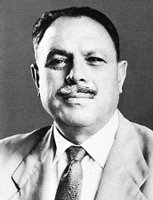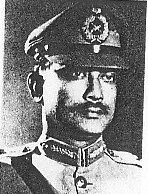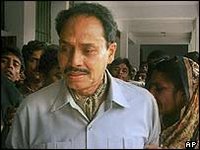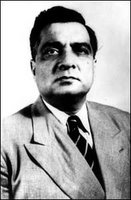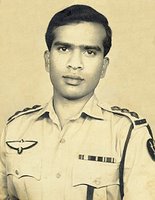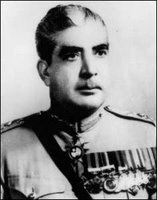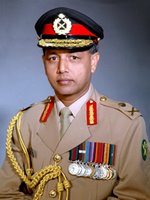spot them by their whiskers
- Sukumar Roy
Bangladeshis are, however, much smarter than Americans. In the US there is gerrymandering, in Bangladesh there is election engineering, to counter which, the opposition enforces blockades. Bangladesh also has a patriotic army, and twice within the last month, a military takeover was feared (or anticipated, depending on your perspective). But I don’t think a successful military takeover is likely in Bangladesh.
Successful? These are the successful military rulers of the Pak-Bangla subcontinent.
Ayub Khan
Zia-ur Rahman
Zia-ul Huq
Hussein M Ershad
Pervez Musharraf
I am going to define a successful military takeover as one where the regime survives for at least five years. Sure it’s a pretty narrow definition of success. But what did you expect, national heros? And why five years? Well, as the Fight Club protagonist says, long enough time horizon and everyone’s survival rate is zero (Keynes said more mundanely that in the long run everyone is dead), so we have to define a term, and five years is the term governments are elected for in Desh.
Old soldiers don’t die, they fade away – so said Douglas MacArthur. Ayub Khan faded away after a revolution ousted him. Ershad refuses to fade away, and Musharraf still shines bright. Both Zias died violently – at 46, the shorter one wasn’t even old. But they all lasted at least five years in power. Regardless of the details behind their takeovers, they ruled in similar fashion: blame the politicians for the mess the country is in, promise the people genuine (or basic, people’s, Islamic or model) democracy, deliver on this promise by winning an election/referendum with over 90% of the vote, make a party with political turncoats and lightweights, you know the deal.
And regardless of the details, they had one other thing in common: whiskers. Goph diye jai chena (spot them by their whiskers) – wrote Sukumar Roy (Satyajit Ray’s father) in the 1920s. All our successful fauji saviors have been whiskered ones. Clean‑shaven military adventurers have been failures. I give you two examples.
Iskander Mirza
Abu Taher
Iskander Mirza, Pakistan’s first military ruler, lasted only a few weeks in office before Ayub kicked him out of the country. He settled in London, running a curry house instead of Pakistan. Abu Taher wasn’t so lucky. He led the coup that brought Zia-ur Rahman to power, Zia rewarded Taher by hanging him.
Now, not all whiskered saviors make successful military rulers. Think of Yahya Khan for example.
Yahya Khan
Every two-bit general promises free elections, this guy actually kept his word. What about the other players in 1971? Mujib promised that he wouldn’t insist on confederation after the election, but after winning he said confederation was non-negotiable. Bhutto promised that he’d have the balance of power, he got only half as many seats as Mujib and still wanted power. Yahya’s generals told him that Bengalis could be pacified within weeks. Yakub Khan, the first general Yahya sent to Dhaka came back within a week saying military solution wouldn’t work. Tikka Khan, the second guy, killed tens of thousands but still failed to defeat Mukti Bahini. Yahya helped the Americans and Chinese kiss and make up, and both let him down when India marched to Dhaka. Of course Yahya was a gin-soaked bufoon, aptly named the Shaggy Dog in Rushdie’s Shame.
What about Moeen U Ahmed, Bangladesh’s would-be savior?
Moeen U Ahmed.
As you can see, he is clean-shaved. It’s no loss if he is not like our other whiskered saviors. But will he prove to be like the other clean-shaved adventurers? I hope we never have to find out.
